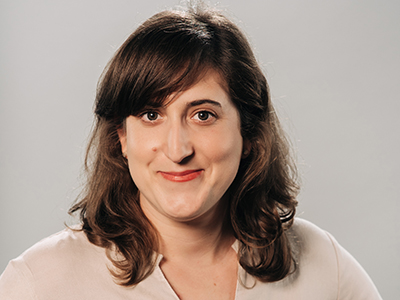
The Master of Applied Behavior Analysis (ABA) degree prepares students to create transformational change in the lives of clients and their families. Program director Cayenne Shpall explains how this program at St. Edward’s University leads to graduates making significant impact.
![]()
What does a Board-Certified Behavior Analyst do?
Board-Certified Behavior Analysts help their clients function better in the world and achieve more independence. Although Applied Behavior Analysis can be used in many contexts, 90% of BCBAs are working with autistic populations. Our clients might struggle with aggression, tantrums or self-injurious behavior. They might have very rigid behavior, such as only eating one or two foods. They may need help with communication, pragmatic social skills, and health and adaptive living skills, such as using the bathroom and avoiding household hazards.
Regardless of the client’s diagnosis, the BCBA follows the same approach: observing how their client interacts with their environment, and then using evidence-based strategies to change the client’s behavior. We also train parents, teachers, and anyone else in the client’s life so that we build a consistent support system.
BCBAs empower their clients; improve safety; reduce stress in the family; educate and support teachers; and reduce clients’ contact with school discipline and with law enforcement.
![]()
How does the St. Edward’s University mission influence the program?
As a social justice–oriented university, we are training BCBAs who are ethical, who understand the nuances of neurodiversity, and who put the needs of clients and their families first. This is part of our Holy Cross orientation toward meeting people where they are. Our mission also emphasizes critical and creative thinking and lifelong learning. Our graduates are open to new, creative approaches and are able to analyze the research to find solutions to help their clients. If a superior tells them to use an approach that doesn’t align with their values, they are able to diplomatically communicate their concern in a way that advocates for the client.
![]()
How does this degree prepare students to sit for the board exam?
We partner with Behavior Development Solutions, which provides learning modules of all the content on the exam. People who complete these modules have a pass rate of 99%. We have embedded these modules into our curriculum so that students are reading their material, doing assignments, talking with professors, and getting another perspective on the content through the modules.
The national pass rate for the exam is around 67%. Our program started in 2020, so the board doesn’t have sufficient data to report our pass rate yet, but we’re optimistic about what it will be.
![]()
What expertise do the faculty bring to the program?
We developed this program with the needs of the field in mind and in consultation with clinic directors and schools. Our adjunct instructors include clinic directors and owners as well as a BCBA who works at the school district level. We value having a diversity of perspectives among our faculty so that students can learn different approaches and techniques. Because our faculty represent so many parts of the field, and because they are well networked in Austin, we’ve been able to connect students with schools and clinics where they can get clinical supervision.

In our program, we focus on developing BCBAs who put the values of the client and the family first, which comports with our university mission to uphold the dignity of the human person.
![]()
What is the logistical advantage of the St. Edward’s program?
Our live online class sessions are from 7 to 8:30 pm, which works around the after-school hours when clinics see clients – typically about 4 to 7 pm. This accommodates students who are already working full-time in the field or who need to get supervised hours during that timeframe.
Our classes are capped at 15 students, which facilitates more dialogue in our live sessions and ensures students have access to professors. We really pride ourselves on having lots of communication between students and faculty, and we’re happy to discuss our students’ clinical questions one-on-one.
It is a rigorous program, and we expect a lot from our students, but we recognize that they have other responsibilities like a job and a family. We’re flexible whenever possible. We really want to support students and help them become better BCBAs, not place hurdles just to see if they can jump over them.
![]()
What is the difference between the master’s program and the certificate?
To sit for the exam, you need a master’s degree in any field; you also need seven specific courses in Applied Behavior Analysis. Most of our students take these seven courses as part of earning their master’s in ABA. However, students who have already earned a master’s degree in another field can take the seven courses and earn the certificate, which is another path to sitting for the BCBA exam.
![]()
What opportunities are available in the field?
An increasing number of children are being diagnosed with autism. In 2000, the Center for Disease Control reported that one in 150 children was diagnosed with autism spectrum disorder. In 2020, that number had risen to one in 36. There is a tremendous demand for services, and clinics all around Austin – and elsewhere – are in desperate need of therapists.
![]()
How has the field of Applied Behavioral Analysis evolved?
The approaches used in the ’70s, ’80s, ’90s and even early 2000s are not representative of where the field is now. Many of the procedures then were coercive. Behavior analysts often prioritized changing behaviors that were visible markers of autism, such as avoiding eye contact or waving one’s hands when excited. The approach was to mask these behaviors to make the person appear more neurotypical. What was missing was input, perspective and advocacy from the clients themselves. Today some autism advocates are critical of ABA. Their critique is largely – and legitimately – directed at practices the field has left behind.
Society’s understanding of autism has changed dramatically in recent decades, and people are more aware and accepting of neurodiversity. The standards for our field are also relatively new; 1998 was the first year people could become a BCBA, and 50% of all currently licensed BCBAs were licensed in 2018. In our program, we focus on developing BCBAs who put the client and the family’s values first, which comports with our university mission to uphold the dignity of the human person. We emphasize creative solutions that adapt a client’s behavior to be safer, or more healthful, or more appropriate in public, without trying to mask their personality. We try to help the client find an alternate way to achieve what they are trying to communicate.
![]()
What type of student is a good fit for the Master of Applied Behavior Analysis program?
Someone with a passion for helping people, especially people with disabilities, and their families. A background in education or psychology helps but isn’t necessary. The vast majority of our students are working in this area already, as a teacher, a behavior support specialist in a school, or at a clinic that serves people with autism. This is a very specific field and degree, so if you don’t have any experience with this field or population, we recommend that you get some experience in a clinic or school before you apply.
![]()
In short, what makes the Master of Applied Behavior Analysis program valuable?
The St. Edward’s ABA program was developed in consultation with professionals in the field. It is progressive and based on up-to-date research and a client-centered perspective. Our classes are small and encourage interaction with faculty who have expertise in many different settings. The schedule is designed to support students who work full time or who are gaining clinical experience during the after-school hours. Our faculty are able to be flexible when students run into challenges. And the career field is growing rapidly – we can’t train BCBAs fast enough.
Take the Next Step
Are you interested in learning more about the Online Master of Education in Applied Behavior Analysis? Fill out this form or call 512.326.7501 to take the next step.

